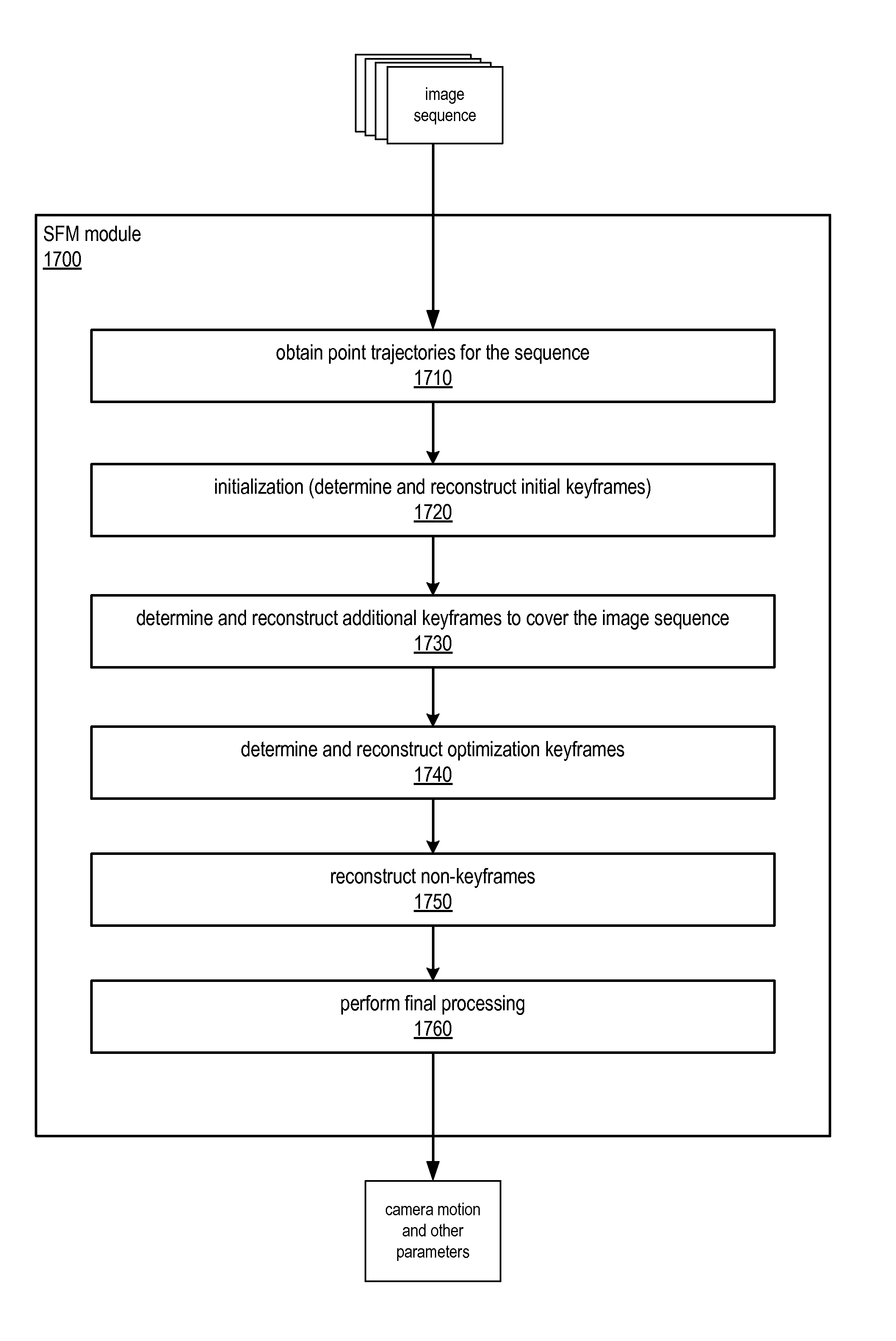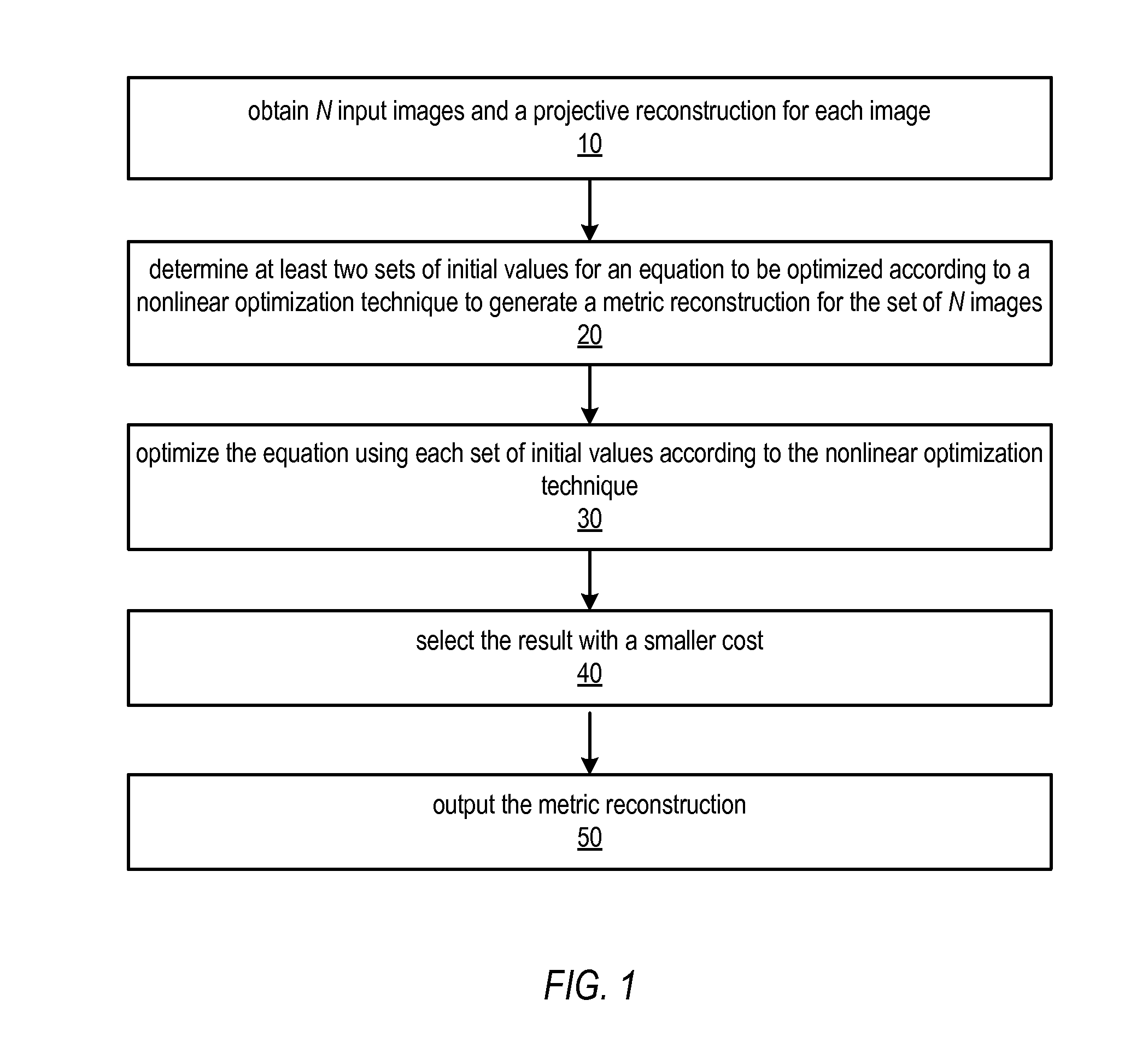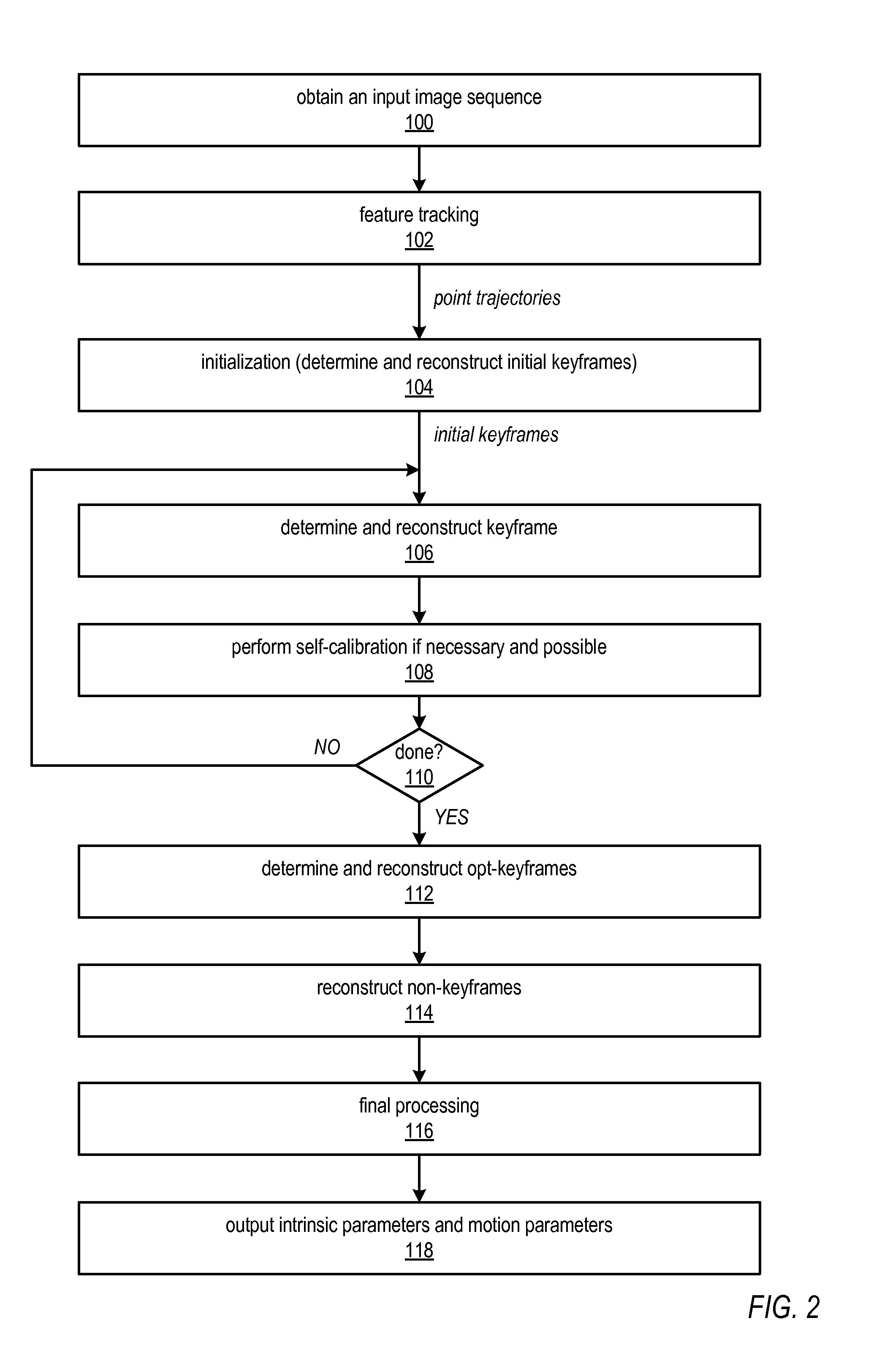Nonlinear self-calibration for structure from motion (SFM) techniques
a technology of structure and motion, applied in the field of nonlinear self-calibration for structure from motion (sfm) techniques, can solve the problems of unfit projective reconstruction for many practical applications, unfavorable projective reconstruction, and prior knowledge that would not make much difference in most conventional linear self-calibration methods, etc., to achieve robust and efficient implementation, reliable calibration results, and the effect of reducing the number of errors
- Summary
- Abstract
- Description
- Claims
- Application Information
AI Technical Summary
Benefits of technology
Problems solved by technology
Method used
Image
Examples
example implementations
[0086]Some embodiments may include a means for performing one or more of the various techniques described herein, including but not limited to the nonlinear self-calibration technique. For example, an SFM module may receive input specifying a set of point trajectories and generate as output structure and motion for a set of images or frames as described herein. The SFM module may, for example, apply the nonlinear self-calibration technique to convert a projective reconstruction to a metric (Euclidian) reconstruction. The SFM techniques described herein, including but not limited to the nonlinear self-calibration technique, and / or the SFM module may in some embodiments be implemented by a non-transitory, computer-readable storage medium and one or more processors (e.g., CPUs and / or GPUs) of a computing apparatus. The computer-readable storage medium may store program instructions executable by the one or more processors to cause the computing apparatus to perform one or more of the t...
PUM
 Login to View More
Login to View More Abstract
Description
Claims
Application Information
 Login to View More
Login to View More - R&D
- Intellectual Property
- Life Sciences
- Materials
- Tech Scout
- Unparalleled Data Quality
- Higher Quality Content
- 60% Fewer Hallucinations
Browse by: Latest US Patents, China's latest patents, Technical Efficacy Thesaurus, Application Domain, Technology Topic, Popular Technical Reports.
© 2025 PatSnap. All rights reserved.Legal|Privacy policy|Modern Slavery Act Transparency Statement|Sitemap|About US| Contact US: help@patsnap.com



